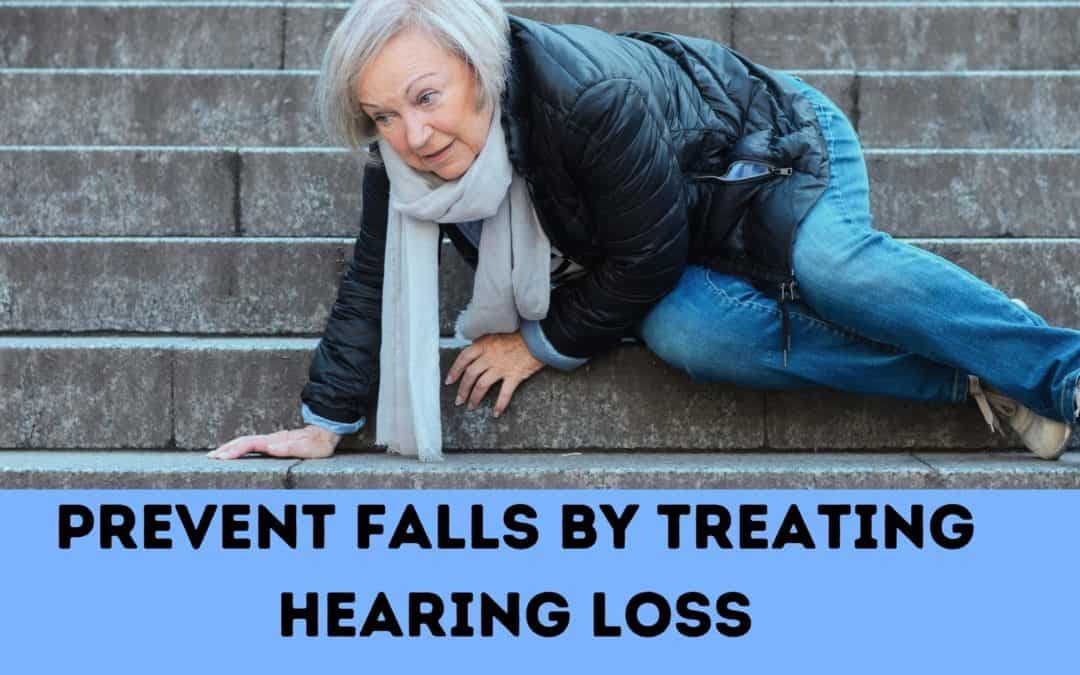Falls are a leading cause of death for adults who are 65 and older according to the Centers for Disease Control and Prevention (CDC). This same age group is also the most affected by hearing loss, a chronic health condition that reduces the capacity to hear and process sound. Research shows that hearing loss can increase the risk of falls. Studies reveal that people with hearing loss can be three times more likely to experience falls than people without hearing loss. An effective way to prevent falls is by treating hearing loss which can significantly increase overall safety.
Research Linking Falls and Hearing Loss
Numerous studies highlight a link between hearing loss and falls. Two studies that investigate this correlation include:
- Johns Hopkins University Study: researchers examined the impact of hearing loss on falls by assessing data collected by a 3-year national survey. It included 2,017 participants, ages 40-69, who completed a questionnaire about their history of falling as well as had their hearing examined. Researchers found that people with:
- mild (defined as a 25-decibel) hearing loss was almost three times more likely to have a history of falling.
- for every additional 10-decibel increase of hearing loss, the risk of falling increased by 1.4 times.
- University of Michigan Study: this study included 115,000 participants, 66 years and older. Researchers found that among the participants who were newly diagnosed with hearing loss:
- 13% experienced a fall within three years of their hearing loss diagnosis. Compared to 7.5% of people without hearing loss.
Both studies show that people with hearing loss were significantly more likely to have a history of falling compared to people without hearing loss.
How Hearing Loss Increases Risk of Falls
So how exactly does hearing loss increase the chances that one will experience falls? Well, researchers suggest that hearing loss can do this in a few ways:
- Lack of Spatial Awareness: hearing loss reduces one’s ability to hear and process speech as well as sound. This makes people less aware of what is happening in the environments they navigate. It affects the capacity to hear hazards, warning sounds, and what’s going on around you. This contributes to reduced spatial awareness which increases the risk of experiencing falls.
- Cognitive Overload: hearing loss that remains untreated affects the brain in several ways. The brain often has to stretch itself and work harder to try and process incoming sounds. This can lead to having fewer resources to also focus on balance and spatial awareness and this kind of cognitive overload can increase the risk of falling.
- Balance: the vestibular system is the sensory system that maintains balance. It consists of semicircular canals in the inner ear which is also where hearing loss often occurs. Hearing loss can impact the vestibular system, affecting balance and motion. This includes where the body is positioned and standing up which can contribute to more falls.
If you have experienced any changes to your hearing health, it is important to address them as soon as possible. Treating hearing loss not only maximizes hearing capacity but reduces health risks including experiencing falls and subsequent accidental injuries!
Prevent Falls by Treating Hearing Loss
Treating hearing loss today involves a straightforward and simple process that can transform your hearing health. The first step is to schedule an appointment to have a hearing test. Conducted by a hearing healthcare specialist (like an ENT doctor), hearing tests involve a painless process that measures hearing capacity in both ears. This identifies any hearing loss and the degree of impairment you could be experiencing. Once your hearing needs are established, your hearing healthcare provider will recommend treatment options that can meet those needs.
Hearing aids are the most common treatment for hearing loss. These are electronic devices that use innovative technology to absorb, amplify, and process sound. This provides the ears and brain with significant support that increases the capacity to hear and process sound. Today’s hearing aids are more advanced than ever before. There is a wide range of options, styles, and features that are designed for optimal sound quality and use. Your hearing healthcare provider will work closely with you to identify the best types of hearing aids that will effectively meet your hearing needs. Call us today to learn more!

